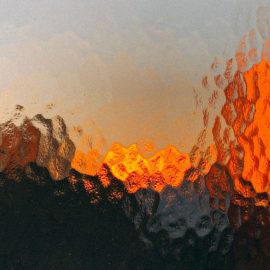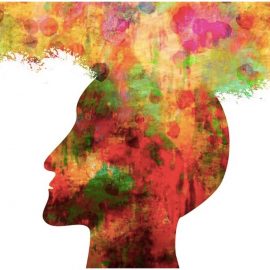

This article is an excerpt from the Shortform book guide to "Blue Mind" by Wallace J. Nichols. Shortform has the world's best summaries and analyses of books you should be reading.
Like this article? Sign up for a free trial here.
Why do you feel so serene sitting on the beach, looking out at the ocean? Why does the mere sound of waves calm you down?
This is the Blue Mind experience. In the book Blue Mind, Wallace J. Nichols argues that water has a profound impact on our well-being and health because it induces a calming, meditative state.
Read on for six Blue Mind quotes that will help you appreciate this fascinating book.
Blue Mind Quotes
Nichols explains why humans are so attracted to water and describes the ways it reduces stress and allows the mind to heal. He discusses why it appeals to our senses, such as sight and hearing, and he explores various ways of being in or around water. Nichols also shares his thoughts on society’s relationship with water and how it might be improved.
We’ve collected several Blue Mind quotes and provided them along with some context to help you understand Nichols’s ideas.
“Several years ago I came up with a name for this human-water connection: Blue Mind, a mildly meditative state characterized by calm, peacefulness, unity, and a sense of general happiness and satisfaction with life in the moment.”
Nichols uses the term “Blue Mind” to describe water’s impact on the brain. Blue Mind is a calm, peaceful, contented state similar to one achieved through meditation, and it can be induced by proximity to water. He distinguishes Blue Mind from “Red Mind,” which is a mental state characterized by stress and arousal, and he presents the Blue Mind state as a potent antidote to the detrimental effects of the Red Mind state.
“The top ten causes of death around the world can either be caused or exacerbated by stress.”
According to Nichols, staying in the stress response state (Red Mind) for too long also has ramifications on the body. It can cause reduced libido, autoimmune diseases, digestion issues, and musculoskeletal problems. All of these together lead to an increased risk of early death.
“We are beginning to learn that our brains are hardwired to react positively to water and that being near it can calm and connect us, increase innovation and insight, and even heal what’s broken.”
Nichols argues that one of the ways that water reduces the stress response is by allowing your mind to rest. When your mind is at rest, your emotions and empathy become more active, resulting in a relaxing, stress-reducing state.
Environmental psychologists Stephen and Rachel Kaplan established a theory of two different kinds of attention: directed and involuntary. Exercising directed attention nonstop for long periods eventually results in what the Kaplans call “directed-attention fatigue,” which reduces our mental capabilities. Involuntary attention, on the other hand, is mostly effortless. Natural environments—particularly those that include water—promote involuntary attention.
“Surfers probably exhibit more Blue Mind than anyone.”
Nichols suggests that surfing is particularly conducive to the Blue Mind state because it requires surfers to be deeply attuned to the movement of the sea and monitor it very closely to see when they might be able to catch the perfect wave.
“Add the dopamine, the endorphins, and the natural setting to the adrenaline rush produced by the amygdala’s ‘fight or flight’ impulse when a surfer is faced with a large wave (or a wave of any kind when you’re first starting out), and you’ve got a seriously addictive experience.”
Nichols explains that surfing affects the brain in a similar way as do many addictive substances: When engaging in an activity that’s novel, risky, rewarding, and challenging, the brain produces a rush of dopamine that we can easily become dependent on. Both surfing and addictive drugs meet all these criteria. Because of this, he often recommends surfing as a positive addiction that people can substitute for harmful addictions.
“Preserving, protecting, and restoring our waters are tasks for many lifetimes, and sometimes the effort can seem overwhelming. But, as long as we stay connected with all of the many, many blessings that water provides, and continue to keep that love in the forefront of our minds and hearts, as long as we remind ourselves to hope, then our stories will help connect others to water and encourage them to do what they can to help care for this beautiful Blue Marble world.”
Nichols argues that the methods we use to encourage environmental activism are misguided and that we should instead tap into our inherent appreciation for the planet to better motivate people to take action.
Nichols recommends encouraging people to take on a biocentric view of the natural world—one that regards our relationship with nature as a partnership and takes into account not only how nature affects humans but also how humans affect nature. He explains that a biocentric view is one built on love and that taking on this type of worldview would prompt people to work harder to protect our natural environment.

———End of Preview———
Like what you just read? Read the rest of the world's best book summary and analysis of Wallace J. Nichols's "Blue Mind" at Shortform.
Here's what you'll find in our full Blue Mind summary:
- How water has a profound impact on our well-being and health
- Society’s relationship with water and how it might be improved
- Activities you can do in or around water to reap the healing benefits






